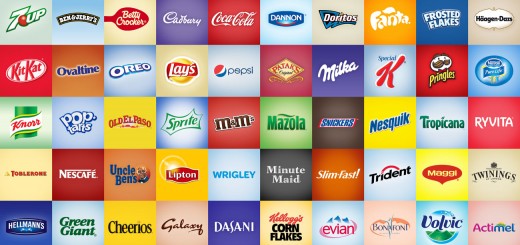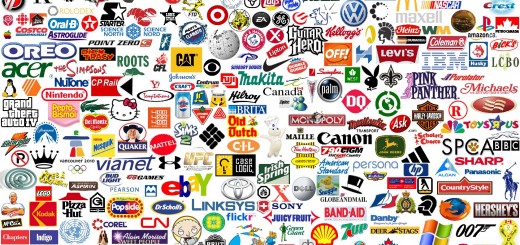Verizon’s Yahoo Deal Creates Powerful Competitive Rival: Experts Comment
Monday, 25 July, saw the long-awaited announcement that US mobile network giant Verizon have acquired internet old-timer Yahoo for $4.87bn (£3.7bn). The news came as no surprise to many, who have been waiting for months to find out who would eventually end up as Yahoo’s new owner. It also leaves many wondering exactly what will become of Yahoo, as it gets swallowed up by Verizon and how it will actually affect those who advertise with them.
One thing is clear: no pun intended, but Verizon is about to get hit by a flurry of data. Yahoo has it in droves – from Tumblr to Brightroll to Yahoo Finance to Yahoo Mail to Gemini and, of course, Flurry; the list goes on. Through all of these assets, Yahoo has access to more than one billion monthly active users globally, according to the official press release.
Verizon’s intention is to integrate Yahoo with AOL, another internet old-timer purchase that Verizon announced in May last year, under the leadership of Marni Walden, EVP and president of product innovation and new businesses, Verizon. This could be a powerful combination and Verizon’s intention has been made clear: the chairman and CEO of Verizon himself, Lowell McAdam, confirms that the acquisition will put them in a highly competitive position as a top global mobile media company and will help to accelerate digital advertising revenue streams.
Inferred from that statement is Verizon are attempting to create a behemoth to rival Google and Facebook, giving advertisers a viable alternative to walled gardens. AOL’s CEO Tim Armstrong says as much: “Combining Verizon, AOL, and Yahoo will create a new powerful competitive rival in mobile media, and an open, scaled alternative offering for advertisers and publishers.”
What does this mean for advertisers, however? Those in the weeds, responsible for optimising search campaigns, or buying inventory across Yahoo’s product portfolio? Will it be business as usual, or will Yahoo completely cease to exist in its current form? ExchangeWire ask industry experts for their take on the future.
Greater consolidation helps the industry
“Verizon faces some major challenges now it has acquired Yahoo. An important one for advertisers is finding a way to integrate data between themselves, AOL, and Yahoo in a way that will allow clients to profile audiences at a scale that is competitive with the likes of Facebook and Google.  Until this happens, advertisers will continue to view Facebook and Google as key partners in allowing them to achieve both brand and performance objectives online. There’s no doubt that greater consolidation helps the industry, as it means there’s less fragmentation of audiences. Any effort to streamline advertising technologies and processes through integration, such as using first-party data to connect the dots between devices, should go some way in simplifying digital advertising for agencies and clients. Over time, this will increase confidence and drive up spend as it becomes easier to reach the right audience. As people use more devices, and the Internet of Things becomes a reality, the way consumers interact with content becomes more complex. Deals like this can help reduce that complexity.”
Until this happens, advertisers will continue to view Facebook and Google as key partners in allowing them to achieve both brand and performance objectives online. There’s no doubt that greater consolidation helps the industry, as it means there’s less fragmentation of audiences. Any effort to streamline advertising technologies and processes through integration, such as using first-party data to connect the dots between devices, should go some way in simplifying digital advertising for agencies and clients. Over time, this will increase confidence and drive up spend as it becomes easier to reach the right audience. As people use more devices, and the Internet of Things becomes a reality, the way consumers interact with content becomes more complex. Deals like this can help reduce that complexity.”
Liam Pook (above), Planning Director, Essence
More measurability for advertisers
“This deal bolsters what we saw in the last IPA Bellwether Report, which reflected the current economic climate in its downgrading of its growth forecast. What this says to us, as an agency, is
 tighter budgets, with brands increasingly focusing on accountability and performance. But this has been happening for some time and it’s something that Verizon clearly has ambitions to find an opportunity in, evidenced by its acquisition of Yahoo, which brings more data and a larger addressable audience into the fray. This deal, if all parties and platforms are successfully integrated, will increase Verizon’s ability for cross-channel targeting, affording greater accuracy and measurability to advertisers across more of the media plan – something that Verizon really needs to do to fulfil its dream of becoming a global media company. And one that’s competitive with the likes of Facebook and Google, which is where they state their ambitions to be.”
tighter budgets, with brands increasingly focusing on accountability and performance. But this has been happening for some time and it’s something that Verizon clearly has ambitions to find an opportunity in, evidenced by its acquisition of Yahoo, which brings more data and a larger addressable audience into the fray. This deal, if all parties and platforms are successfully integrated, will increase Verizon’s ability for cross-channel targeting, affording greater accuracy and measurability to advertisers across more of the media plan – something that Verizon really needs to do to fulfil its dream of becoming a global media company. And one that’s competitive with the likes of Facebook and Google, which is where they state their ambitions to be.”
Mark Jackson (above left), MD, MC&C
A compelling single customer view story
“According to the recent Trend Report from Mary Meeker, 75% of all new online ad spending in 2015 went to Google or Facebook. This alarming statistic shows the extent that Google and Facebook are reshaping the online advertising landscape. When you consider that in 2015 the UK  digital market grew by 16.4% to £8.6bn – or 43% of overall marketing spend – this is a marketing issue rather than a digital one. Verizon’s acquisition will combine the powers of Yahoo and AOL, enabling them to join the big players, Facebook and Google. The combined size of both brands will support them in providing an even more compelling story around a single customer view and, subsequently, exerting more influence over how digital marketing budgets are spent. So, for advertisers and buyers more competition should be seen as a good thing, but it is another step towards the consolidation of the industry – which some will see as power being shifting away from the buyer.”
digital market grew by 16.4% to £8.6bn – or 43% of overall marketing spend – this is a marketing issue rather than a digital one. Verizon’s acquisition will combine the powers of Yahoo and AOL, enabling them to join the big players, Facebook and Google. The combined size of both brands will support them in providing an even more compelling story around a single customer view and, subsequently, exerting more influence over how digital marketing budgets are spent. So, for advertisers and buyers more competition should be seen as a good thing, but it is another step towards the consolidation of the industry – which some will see as power being shifting away from the buyer.”
James Duffy (above), Head of Digital, Total Media
AOL technology could power Yahoo Search
“Verizon’s purchase of Yahoo won’t change much from a search perspective, as focus on non-Google search engines is already fairly minimal, especially in the UK. Globally, AOL has a miniscule search market share of 0.13% to add to Yahoo’s quite piddly 7.68%. Any impact will be dependent on what happens with the actual search results. At the moment, Yahoo search is powered by  Bing – this is convenient for anyone who cares about Yahoo and Bing rankings, because you’re only really optimising and monitoring for one combined entity. If Verizon keep that Microsoft deal (either for a standalone Yahoo search engine, or in a merged Yahoo/AOL) then that level of convenience remains. If it loses or drops that deal and ends up powering Yahoo with AOL’s technology, or merges Yahoo into AOL and uses AOL technology on the combined entity, then some marketers may need to take extra steps to monitor and/or optimise for Yahoo. Whether marketers will continue to use Yahoo likely depends on which market they are operating in. For UK marketers, Yahoo search has just a 2.23% market share and Bing even less so. I would think, in that situation, they would likely prefer to forget about both engines than dedicate time and money to thinking about them both as standalone entities.”
Bing – this is convenient for anyone who cares about Yahoo and Bing rankings, because you’re only really optimising and monitoring for one combined entity. If Verizon keep that Microsoft deal (either for a standalone Yahoo search engine, or in a merged Yahoo/AOL) then that level of convenience remains. If it loses or drops that deal and ends up powering Yahoo with AOL’s technology, or merges Yahoo into AOL and uses AOL technology on the combined entity, then some marketers may need to take extra steps to monitor and/or optimise for Yahoo. Whether marketers will continue to use Yahoo likely depends on which market they are operating in. For UK marketers, Yahoo search has just a 2.23% market share and Bing even less so. I would think, in that situation, they would likely prefer to forget about both engines than dedicate time and money to thinking about them both as standalone entities.”
Adam Bunn (above left), SEO & Social Media Director, Greenlight
The post Verizon’s Yahoo Deal Creates Powerful Competitive Rival: Experts Comment appeared first on ExchangeWire.com.



